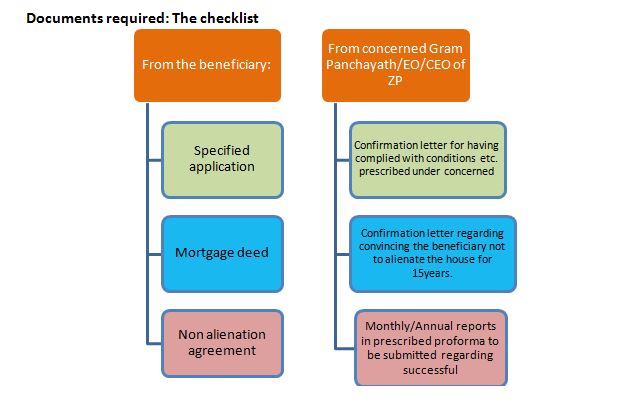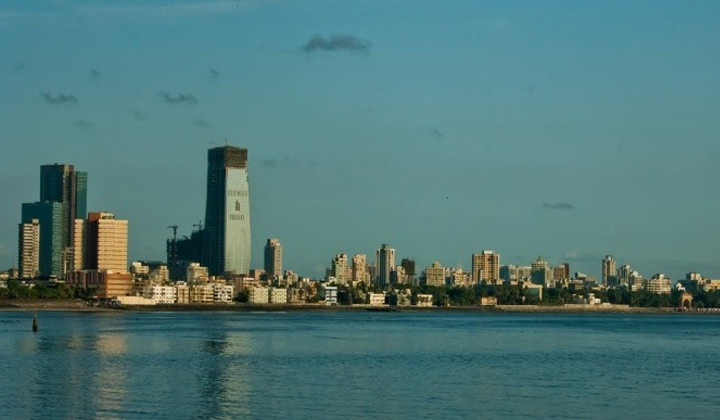Trending Now
- Action should be taken against the cops who protect the Ganja accused in TN : PMK leader Anbumani Ramdoss
- Votes that go to Congress or INDI alliance is a waste : PM Modi
- Court grants one-day custody to police to investigate Youtuber Savukku Shankar.
- We actually got our independence only in 2014. The independence to change this country as it should be : Actor , politician, Kangana Ranaut
Real Estate
Hakku Patra: Defining the title of the land
![]() January 11, 2016
January 11, 2016
Sukriti Yaduwanshi
Being the rightful owner of a property, one must possess all the required legal documents that legally states the possession. It is often difficult for the underprivileged segments to get any legal document for various reasons such as illiteracy, being unaware of the procedures, etc. In Karnataka, Hakku Patra, which is issued by state government to such home buyers, defines the title of their ownership.
Understanding Hakku Patra
The term ‘Hakku’ means ‘the right’ and ‘Patra’ denotes any document or paper. Hakku Patra is a document that states the rightful inheritance of a property by an individual. The land, on which the Hakku Patra is issued, is usually government-owned land and there are some conditions attached to it.
Hakku Patra is the title deed to a plot of land that establishes the ownership. “The Hakku Patra is issued to people from underprivileged sections of the society, such as the poor and slum-dwellers. The registration of the Hakku Patra is free of cost to the beneficiary. Any house constructed on Hakku Patra land must be used for the beneficiary’s residence and should not be rented out,” says Vivek Chitnis, a Bangalore-based lawyer.
Hakku Patra is issued under the Ambedkar Rural Housing Scheme, of the Karnataka government to provide housing grant of Rs 20,000 to scheduled castes and scheduled tribes in the rural areas.
How to obtain a Hakku Patra?
The Ambedkar Rural Housing Scheme is defined under the Rajiv Gandhi Rural Housing Corporation Limited of Karnataka Government.
One can get the procedure started by going to the Chief Executive Officer (CEO), Zilla Panchayath (ZP), of the concerned district, Executive Officer (EO), Taluk Panchayath, of the concerned Taluk and Secretary, Gram Panchayath concerned.
Find out the eligibility and the steps required to obtain Hakku Patra –
Eligibility and Conditions
The beneficiary should be a permanent resident of any rural area in Karnataka and find a place in the list prepared by Gram Sabha
The beneficiary should belong to SC/ST category
The beneficiary should be economically backward and his income should fall in the income limit fixed for the poverty line. The present BPL limit is Rs 11,800/- per annum
Hakku Patra should be distributed in the name of a woman or a male applicant’s wife. In the case of unmarried male/widower beneficiary, it can be distributed in their name
The beneficiary should not have availed housing assistance under any other scheme
Selection of Beneficiaries: In 2003, a survey of “siteless persons” and “those who had their own site but were houseless” was done and a list of such persons prepared. Gram Sabhas are adding, genuinely eligible but left out names to this list and also are deleting the names of those who are in the list but are ineligible. Such lists prepared by Gram Sabhas are being made available. The beneficiaries will be selected from the updated list in Grama Sabha as per rule
Size and design of the house: The built up area should be not less than 20 sq mtrs. There is no prescribed blue print or design for this purpose. For construction of houses, alternative designs can be adopted to suit the local factors like soil, climate, locally available construction material, needs of the beneficiaries, etc., The beneficiary can actively participate at every stage of construction in order to get a well constructed house with better and additional facilities
The improved hygiene, the house design, the usage of improved building techniques etc., as in case of Indira Awaas Scheme, can be applied to this scheme also
Until the period of 15 years, the beneficiary will be given only the possession of the house and the ownership will be transferred to her only after expiry of 15 years.
Overall, the terms and conditions determined by the government, from time to time regarding the implementation of the scheme should be consciously complied with.
Mode of the construction of house:
Made by beneficiary on her own: Beneficiary can herself build the house as per locally approved plan. (For this purpose, after the issue of work order the amount will be directly paid to the beneficiary in prescribed installments by account payee cheque)
Through agencies: If the beneficiary so desires, the construction of house can be through an agency (Nirmithi Kendra, KLAC, Engineering Division of ZP, NGO) nominated by it
The beneficiary should not try to alienate the house for a period of 15 years. In case he does so, the house can be forfeited and allotted to another eligible beneficiary or can even be sold remitted back to the company.
Source: Rajiv Gandhi Rural Housing Corporation Limited of Karnataka Government website
The issuance of Hakku Patra falls under a number of government schemes, and bound by many conditions. Therefore, it is advisable to seek the help of a competent property lawyer, when it comes to transactions of Hakku Patra plots, whether it is a question of inheritance or buying/selling of the plot.
According to the Karnataka Information Commission, one can file the RTI to obtain information related to a Hakku Patra. If the petitioner is not satisfied and wants remaining information, he can file first appeal before the First Appellate Authority within 30 days from the receipt of this Order.
If such an appeal is filed, the First Appellate Authority should consider the same on merit without insisting on the period of limitations and dispose of the case as early as possible in accordance with Section 19 of RTI Act 2005. If the petitioner is not satisfied by the outcome of the first appeal, he is at liberty to file second appeal under Section 19(3) of the RTI Act, 2005 before the Commission.
So, be the legitimate owner of your property by obtaining the Hakku Patra if you own such a property.
























